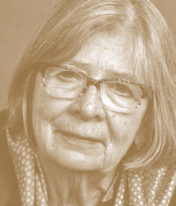Speech by His Majesty the King
Opening words by His Majesty King Willem-Alexander in his capacity as patron of the Praemium Erasmianum Foundation, to mark the 60th edition of the Erasmus Prize at the Royal Palace in Amsterdam:
Ladies and gentlemen,
This a very special edition of the Erasmus Prize. Today we’re not only honouring a remarkable laureate, we’re also celebrating the sixtieth anniversary of the prize itself.
As the patron of the Praemium Erasmianum Foundation I’d like to welcome you all and say how much I value your presence and involvement.
It was my grandfather who together with several others created the Erasmus Prize. He remained its patron until his death in 2004.
In its early years the Erasmus Prize chiefly had a European focus. But over time its objectives have gradually broadened. It’s now awarded to a person or institution that has made an exceptional contribution to the humanities, the social sciences or the arts, in Europe and beyond.
It was clear from the very start in 1958 that this prize was no respecter of conventions. The first Erasmus Prize wasn’t awarded to a person or an institute, but to the Austrian people…
Former laureates have a standing invitation to attend the ceremony. But we’re rather relieved that word of this doesn’t seem to have got out in Austria!
Over the past sixty years many impressive individuals and institutes have been honoured. I cherish the memories I have of the laureates I was lucky enough to meet.
Like Ian Buruma, who was awarded the fiftieth edition of the Erasmus Prize. The theme of that anniversary year was ‘The New Cosmopolitan’… That was only ten years ago…
Or Benjamin Ferencz, the driving force behind the establishment of the International Criminal Court.
José Antonio Abreu, who introduced children from the slums of Venezuela to classical music.
The young representatives of the Wikipedia community, who have made knowledge available to all. And A.S. Byatt, with her passionate plea for imagination.
The history of the Prize stretches back beyond my own. How I wish I could have met its earlier laureates too…
Robert Schuman… Oskar Kokoschka… Martin Buber… Charles Chaplin…
Indeed, where were the women?
I’m pleased to say that this gender imbalance has been redressed somewhat in recent years – and again today!
It’s hard to describe what connects the laureates. They’re people who aren’t afraid to go against the flow. Undogmatic. Unconventional perhaps.
They’re the ones who pull us out of the rut and show us new paths. They move us. Inspire us. Challenge us.
They all keep the spirit of Erasmus alive.
But what is that spirit, exactly?
It’s not so easy to define.
Erasmus defies categories.
He was a humanist freethinker. But also a devout Catholic.
A model of temperance, harmony and tolerance. But also a fierce opponent.
A thoughtful scholar. But also a restless wanderer.
A serious man. But also a master of satire.
The Dutch are very proud of this famous son of Rotterdam.
But Erasmus wasn’t so complimentary about his fellow countrymen. He had his doubts about the intellect of the Dutch.
I quote: ‘Nowhere else does one find so many educated men. But one seldom encounters a truly great scholar.’
A sober assessment of our ancestors, five hundred years ago.
The fact remains that Erasmus opened the door wide for free thinking and free research.
The Dutch historian Johan Huizinga put it as follows: ‘Erasmus could not bear that a wall of bedazzlement, routine and unthinkingness prevented people from seeing things in their proper perspective’.
Erasmus belonged to the first generation that grew up with the printing press. ‘In many ways he was essentially a journalist,’ Huizinga wrote.
And so it’s fitting that, in its sixtieth year, the prize which bears Erasmus’ name has been awarded to an investigative journalist. Someone who brings the truth to light. Who shows us the world through different eyes and encourages us to think for ourselves.
That ties in with the Erasmian tradition we keep up. And it’s especially important now, at a time when critical and independent journalism – crucial in any free, democratic society – is in jeopardy in many parts of the world.
Erasmus was averse to extremes and ingrained opinions. ‘Let us,’ he wrote, ‘judge other men’s views fairly and not esteem our own as oracles’.
No one has a monopoly on truth and wisdom. That simple message is Erasmus’ legacy to us.
His appeal has lost none of its relevance. I’d like to share one last quote with you:
‘Let us resist, not by insults and threats, not by force of arms and injustice, but by simple discretion, by gentleness and tolerance’.
I’d like to thank all those at the Praemium Erasmianum Foundation who have helped keep this legacy alive. The Erasmus Prize is a tribute to those who believe in freedom, in open-minded research, creative expression and openness. I hope the Foundation will continue its good work for very many years to come.
Thank you.
